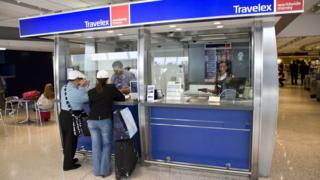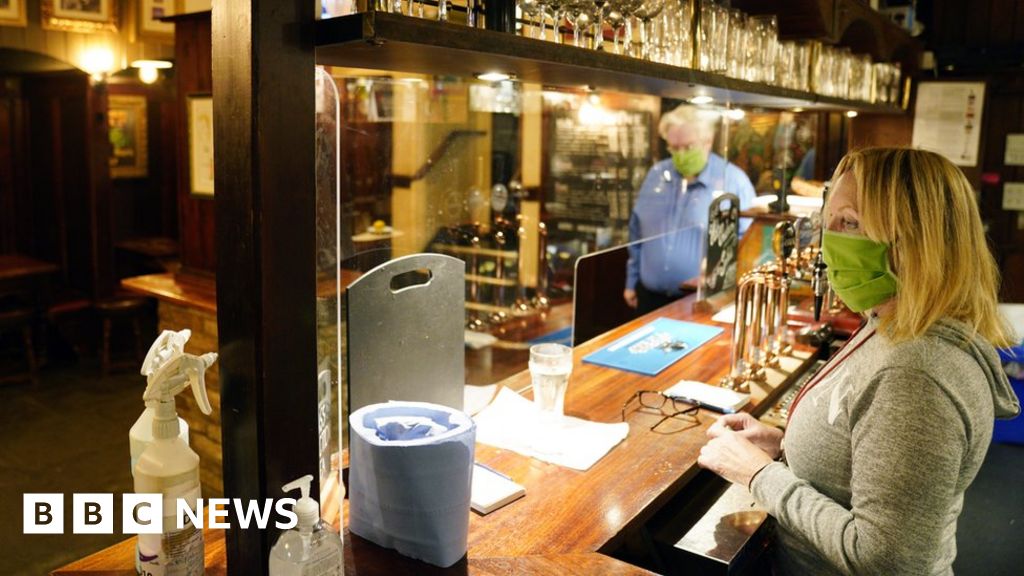 Image copyright
Getty Images
Image copyright
Getty Images
Foreign exchange firm Travelex has undergone "a complex restructuring deal", with the loss of more than 1,300 jobs in the UK.
Administrators PwC said a cyber-attack followed by the Covid-19 crisis had "acutely" hit the firm.
Travelex was held to ransom by hackers in January after the cyber-attack forced it to turn off its systems.
PwC said that a so-called "pre-pack" administration deal had been reached which had saved 1,800 UK Travelex jobs.
This is where a firm sells all or some of its assets to a pre-determined buyer and appoints administrators to do so.
PwC said parts of the firm had been bought by a newly created company controlled by its lenders.
That includes the parts that deal with supermarkets and large corporate and banking customers, and some of its airport business.
However, the High Street shops and airport branches that were closed during lockdown will not reopen.
It said the deal had delivered £84m of new money and substantially reduced the business's debts.
Global brand
Toby Banfield, joint administrator at PwC, said it had enabled a core part of the business to continue operating under new ownership.
He added: "The completion of this transaction has safeguarded 1,802 jobs in the UK and a further 3,635 globally, and ensured the continuation of a globally recognised brand.
"Unfortunately, as the majority of the UK retail business is no longer able to continue trading, it has regrettably resulted in 1,309 UK employees being made redundant today.
"Our dedicated employee team will be providing support to all of the people impacted."
Travelex suffered more than a month of disruption to its operations at the start of this year, after it discovered on New Year's Eve that it had been hacked.
The firm did not disclose full details, but a gang called Sodinokibi claimed to have accessed reams of sensitive customer data and demanded a ransom of $6m (£4.6m).
At the height of the disruption, cashiers resorted to using pen and paper to keep money moving at bureaux de change in airports and on High Streets.

 5 years ago
725
5 years ago
725 

